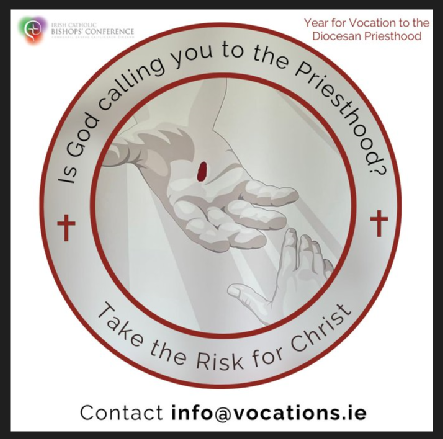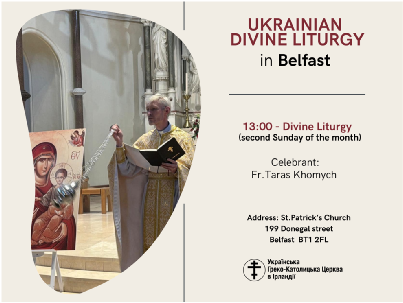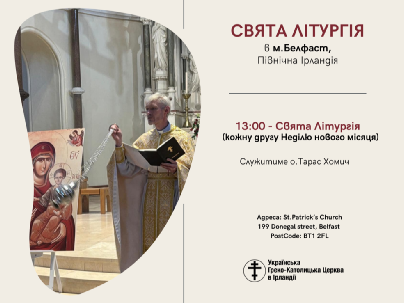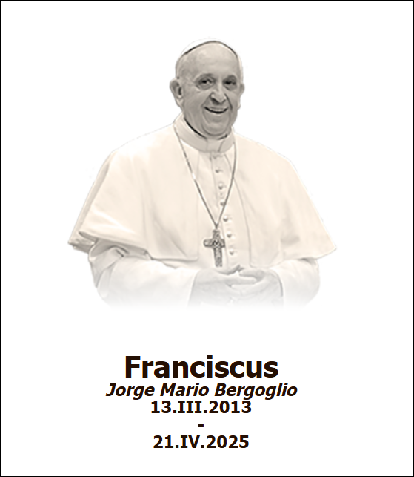

Please remember to pray for vocations in your prayers so that we may get more young men and women hearing the call into a religious life.
Since Easter this year, a monthly Liturgy in the Ukrainian Greek Catholic Rite has started in Belfast. This is response to a request from Ukrainian refugees living throughout Northern Ireland for pastoral support in their own language and Rite.
Fr Taras Khomych the Ukrainian Chaplain in Liverpool travels to celebrate the Divine Liturgy at St Patrick’s, Donegall Street, Belfast on the second Sunday of the month at 1pm.
The main contact for the Ukrainian Catholic community in Ireland is: ugccie@gmail.com






Extra Newsletter Notices
Retirement Mass:
Fr Tom McManus’ retirement Mass will take place at 7:00pm on Monday 2nd March in St Brigid’s Church, Drumkeeran with a reception afterwards in the Community Centre, all are invited and welcome to attend.
______________________________
A Big Thank You: To all who helped in Parish Activities during the past year; The Secretary, Angela, Sacristans Ann, Kathleen and Peggy, Readers, Eucharistic Ministers, The Choir, Collectors, Counters, Stewards, altar Servers, the Finance and Pastoral Committees, Boards of Management of the schools and all who volunteer when needed. A special thanks to the Leitrim Development Company and the RSS scheme workers who keep the Church grounds and cemetery so well maintained. God bless the work you do and we depend on you in the New Year. __________________________________________________
Collections: Thanks to all who contribute to the support of the Priests and their local church and who help with the other collections.
If you are paying by cheque for Dues, then make the cheque payable to “Priests Revenue Account”.
For Offertory collections to support your local church; then make the cheque payable to one of the following;
- Drumkeeran Church Account
- Tarmon Church Account
- Creevelea Church Account.
The envelopes for 2026 can be collected in each church. If you have not got a box of envelopes in the past and would like to help your parish financially then please ask or email the Parish Office on newsletter@inishmagrath.com. Thank you.
Safeguarding Sunday 15th February 2026
This weekend we mark Safeguarding Sunday for 2026. Please follow the link below to read the Diocese of Kilmore’s Safeguarding Newsletter.
